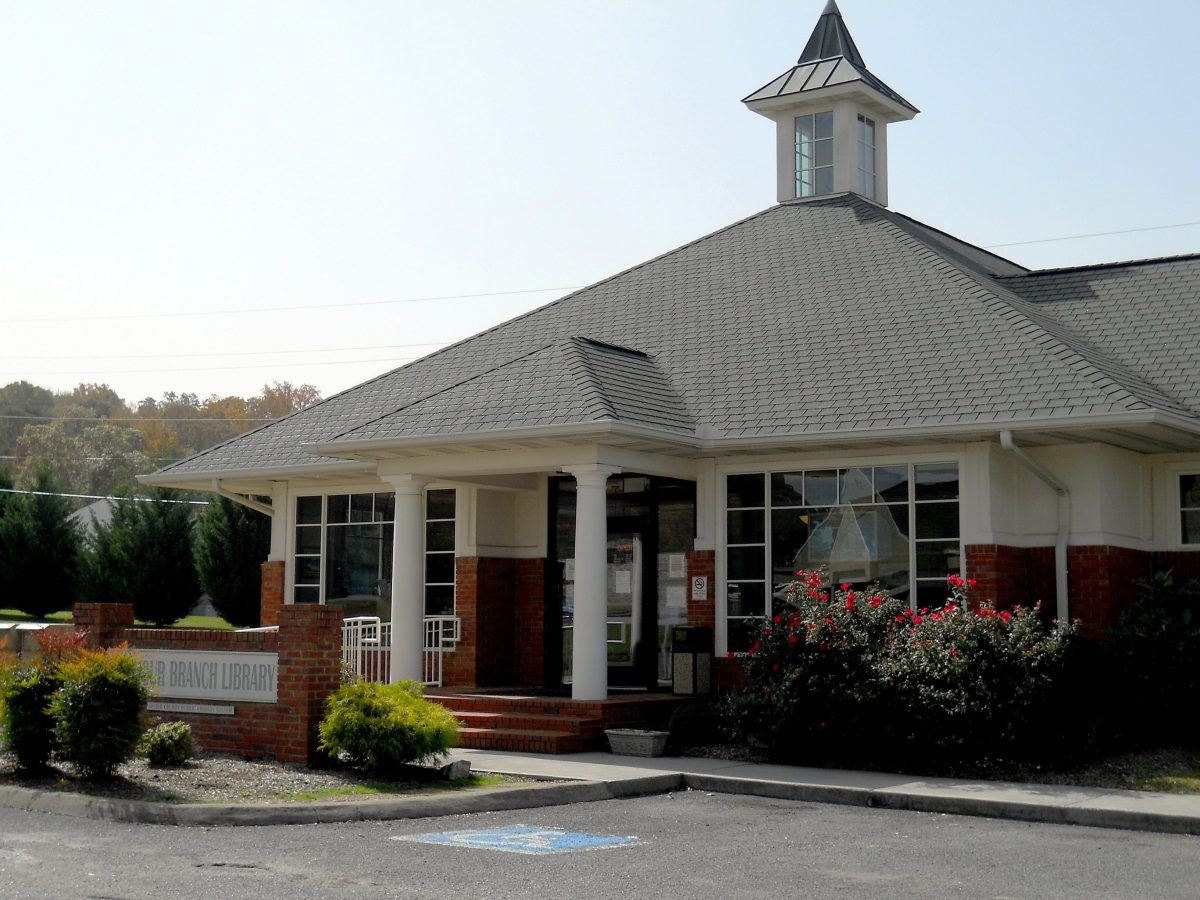by Patrick Doyle
Canalside Chronicles Staff
At 10:15 a.m. on a Saturday, the Seymour Library is already crowded. By the front entrance, a man scans a kiosk full of blank tax forms and pulls out the sheets he needs. In the young adult section, four high schoolers sit tightly and hold a quiet conversation while a woman works on her résumé at a nearby computer. In the back, an elderly couple peers down at a case full of old photographs in the local history room.
This flurry of activity is common for the library, which serves 350 patrons a day. Yet, in 2017, the library operated on a $60,000 deficit, forcing its board of trustees to reduce hours. The place so many people in Brockport, Clarkson and Sweden depend on for assistance needs some assistance of its own.
“We’re spending more than we’re taking in,” said Library Director Carl Gouveia.
Gouveia said the majority of the library’s funding comes from the three municipalities it serves. That funding only covers basic operating costs, like employee wages, book purchases, and utility bills. The library is left to foot the bill for everything else.
“All of these improvements, updating, renovations–all of it–is on us,” Gouveia said.
Gouveia said the library needed major ceiling repairs in 2015, which used up almost all of the money it received from private donations and endowments to cover the cost. Meanwhile, the price of books, cost of utilities and minimum wage increased, while funding from the thee municipalities it serves stayed the same.
In July of 2017, Gouveia brought the library’s funding issues to its board of trustees and asked for an increase in its operating budget. The board denied the request, forcing the library to cut hours, programming and book purchases. Seymour Library changed its opening time from 8 a.m. to 11 a.m. for the rest of 2017, ending all morning programming.
“One of the problems we face is that we’re funded by three municipalities,” said Gouveia.
For the library to receive any increase in funding, all three municipalities have to approve the new budget unanimously. Gouveia blames finger pointing between the municipalities for the library’s budget issues.
“If one municipality says, ‘no we’re not going to increase [our budget]’ then all three won’t increase,” said Gouveia.
To get around this roadblock, Gouveia said the municipalities would need to form a library district, which would allow voters to approve of budgetary changes instead of town and village government. Such a district passed state legislature in 2015 only to be vetoed by Gov. Andrew Cuomo.
Recently, Clarkson Town Supervisor Jerry Underwood donated his entire paycheck, totaling $18,000, to the library. The windfall of money allowed the library to stay open for an extra hour, but it’s only a temporary fix. If the library doesn’t fix its budget issues by the end of 2018, it will be forced to revert back to its diminished hours.
“I’m hopeful that we won’t make any more hour cuts,” said adult services librarian Abigail Devuyst.
Devuyst said she started working at the library in 2012, when many of the patrons needed help finding jobs after the 2008 financial crisis.
“I was having these people come in that were in life and death situations…and that’s a high tension [situation], but it’s also high payoff when you see people come in who got a job,” Devuyst said.
Devuyst said many of the library’s adult programs focus on helping patrons build résumés and find jobs. That type of life-building service extends to all facets of the community whether it be literacy programs of children, tech tutoring for seniors, or writing groups for teens.
A 2016 Pew Research center study into public attitudes toward local libraries found that two-thirds of Americans think a local library closure would have a major impact on their community as a whole.
“I use it for space to do work and I take my children there for the library’s programs,” said Colleen Pittman, a patron of Seymour Library.
Pittman is a college student and a mother who works full time. If Seymour Library closed, patrons like Pittman would be forced to find another space to satisfy the diverse needs of their families.
“There’s just so much that people receive besides books at their local library,” said Gouveia.
Gouveia finishes out his shifts flanked by two computers at the library’s information desk. For hours, he helps teenagers call their parents, looks up book titles for patrons, and receives records for the fledgling local history room. His dedication is a reflection of everyone who works at the library. Seymour Library’s staff puts an emphasis on supporting the community, even if that support isn’t reciprocated.



















